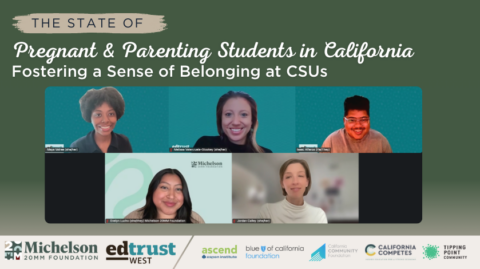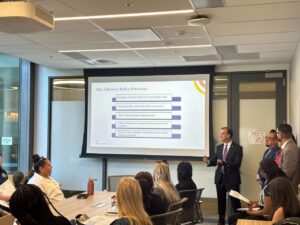One in three college students face food insecurity. This insecurity disproportionately affects historically underrepresented student groups, including international students. Additionally, more than one million international college students live in the U.S., making up six percent of the total student body. Recognizing this, we proudly award a Michelson Spark Grant to Swipe Out Hunger who, over the next year, will develop a toolkit and virtual training to help campuses support international students navigating food insecurity.
How Swipe Out Hunger’s Toolkit Empowers Campuses to Support International Students
This Spark Grant will create a comprehensive toolkit outlining the international student experience and best practices. The toolkit is particularly needed because international students cannot receive most U.S.-based public benefits. Swipe Out Hunger will also offer monthly educational panel discussions, called Swipe Sessions. These sessions will feature staff and students, who will share insights and real-world examples from campuses across the country. By the end of the year, more than 860 campuses, administrators, and advocates will have access to the knowledge and resources to help international students meet their basic needs.
Addressing the Growing Need for Targeted Support for International Students
Swipe Out Hunger’s data shows that international students are 14% of the students who use their on-campus food resources. This project responds to the growing demand for support of international students, who face unique barriers to obtaining their next meal. “Many campuses see firsthand how crucial it is to address the needs of international students,” said Dr. Queena Hoang, Senior Program Manager for Student Basic Needs. “This toolkit will equip institutions to meet those needs effectively, fostering a more inclusive and supportive campus environment.”
The project will also aid other student groups who cannot access public benefits. These students include undocumented students as well as those with Deferred Action for Childhood Arrivals (DACA)mented/Dreamers status. The toolkit will help campuses provide a wider range of services and resources to students who are often left behind by traditional aid systems. In doing so, Swipe Out Hunger will directly help thousands of students across the country.
How Swipe Out Hunger Leads the Way in Food Insecurity Solutions
With years of experience working directly with students and administrators, Swipe Out Hunger has built a robust network of nearly 1,000 campuses. This national network allows the organization to identify the emerging needs of students and tailor impactful solutions. Through its Student Advisory and Leadership Council, Swipe Out Hunger ensures that student voices are at the heart of its initiatives.
“Food insecurity doesn’t discriminate. It affects students from all backgrounds, including international students who fall through traditional aid systems,” Dr. Hoang shared. “This project empowers campus leaders to address gaps and ensure all students, regardless of status, have the resources they need to succeed.” By improving support systems, Swipe Out Hunger is setting a precedent for campus communities to rethink how they address basic needs.
About the Michelson 20MM Foundation
Michelson 20MM is a private, nonprofit foundation working toward equity for underserved and historically underrepresented communities by expanding access to educational and employment opportunities, increasing affordability of educational programs, and ensuring the necessary supports are in place for individuals to thrive. To do so, we work in the following verticals: Digital Equity, Intellectual Property, Smart Justice, Student Basic Needs, and Open Educational Resources (OER). Co-chaired and funded by Alya and Gary Michelson, Michelson 20MM is part of the Michelson Philanthropies network of foundations.
To sign up for our newsletter, click here.







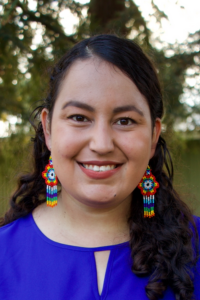
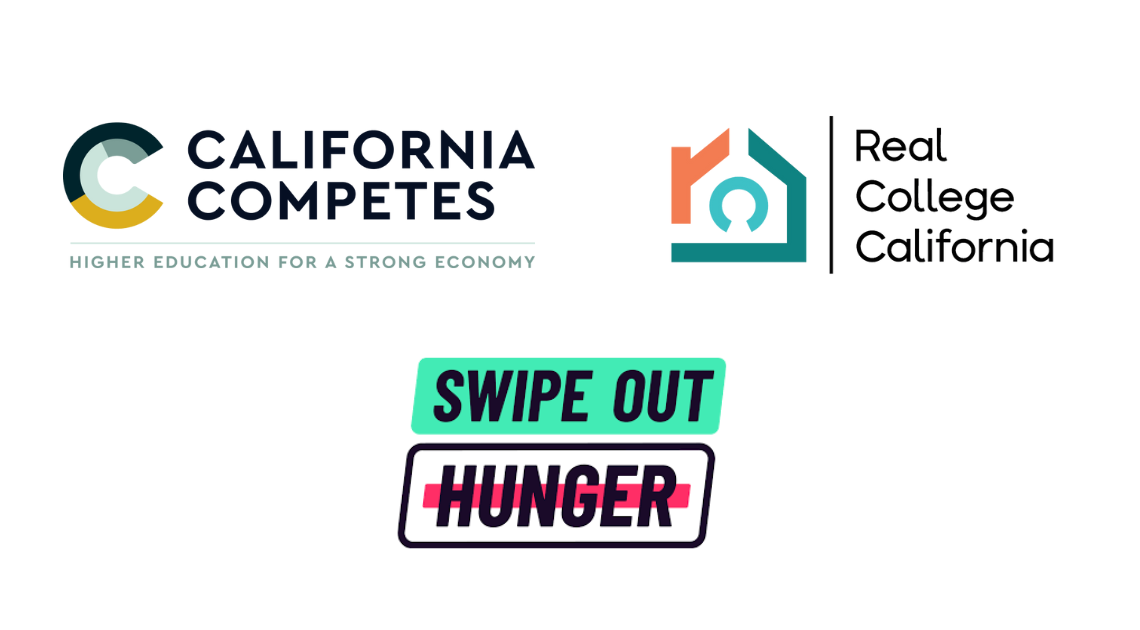
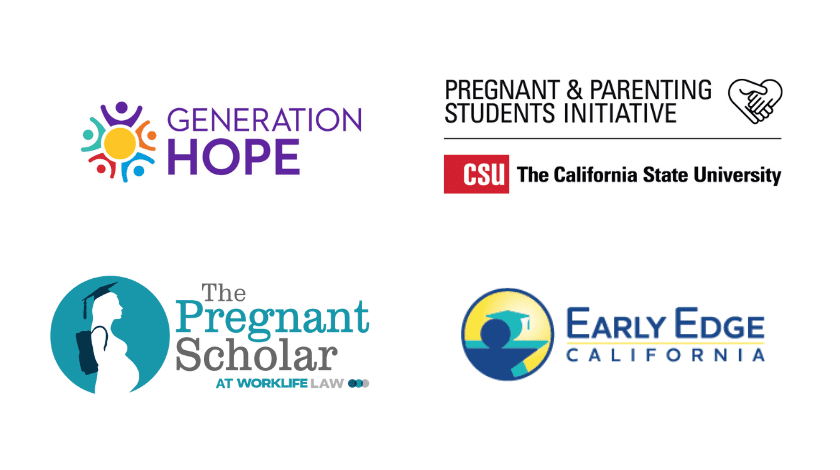
 Isaac Alferos
Isaac Alferos Melissa Valenzuela-Stookey
Melissa Valenzuela-Stookey Maya Valree
Maya Valree